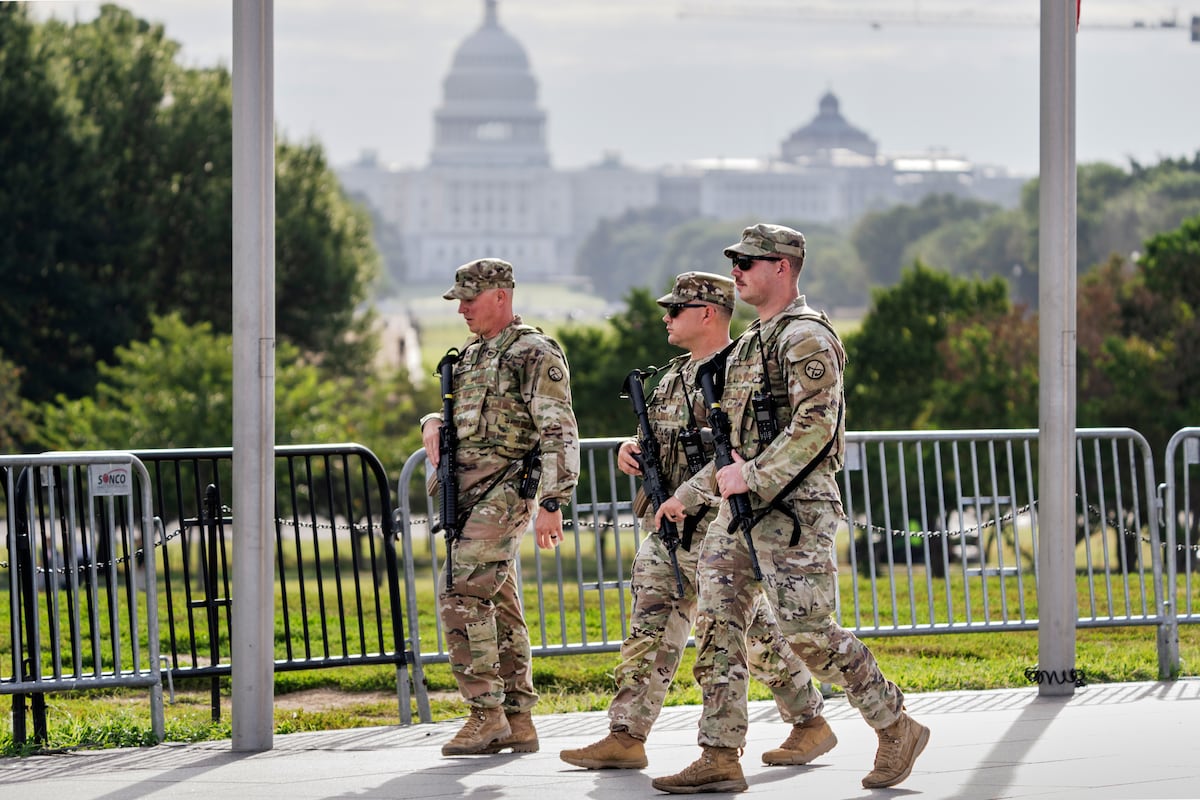President Donald Trump has threatened to deploy the National Guard to Chicago, New York, Seattle, Baltimore, San Francisco and Portland, Oregon, to fight what he says is runaway crime. Yet data shows most violent crime in those places and around the country has declined in recent years.
Homicides through the first six months of 2025 were down significantly compared to the same period in 2024, continuing a post-pandemic trend across the U.S.
Trump, who has already taken federal control of police in Washington, D.C., has maligned the six Democratic-run cities that all are in states that opposed him in 2024. But he hasn’t threatened sending in the Guard to any major cities in Republican-leaning states.
John Roman, a data expert who directs the Center on Public Safety & Justice at the University of Chicago, acknowledged violence in some urban neighborhoods has persisted for generations. But he said there’s no U.S. city where there “is really a crisis.”
“We’re at a remarkable moment in crime in the United States,” he said.
Public sees things differently
Trump might be tapping somewhat into public perception when he describes cities such as Chicago as a “killing field.” The vast majority of Americans, 81%, see crime as a “major problem” in large cities, according to a survey released this week by The AP-NORC Center for Public Affairs Research, though there is much less support, 32%, for federal control of police.
The public was reminded this week that shootings remain a frequent event in the U.S. In Minneapolis, which has seen homicides and most other crime fall, a shooter killed two children attending a Catholic school Mass Wednesday and wounded 17 a day after three people died in separate shootings elsewhere in the city.
Still, over time, the picture is encouraging, according to numbers from AH Datalytics, which tracks crimes across the country using law enforcement data for its Real-Time Crime Index.
Aggravated assaults — which includes nonfatal shootings — through June were down in Chicago, Portland, Seattle, Baltimore and San Francisco and were virtually unchanged in New York. Reports of rape were up in New York and Chicago during the first half of the year, but down in the other cities, including a 51% drop in San Francisco.
The crime index also showed that property crimes, such as theft, burglary and motor vehicle theft, were mostly down in those six cities in the first six months of 2025. Theft crimes rose from 2020 to 2024 in four of the six cities analyzed by AP.
Cities defend safety strategies
Trump exaggerated and misstated facts about crime in Washington when his administration took over the D.C. police department and flooded the capital with federal agents and the National Guard. He referred to Baltimore, 40 miles (64 kilometers) away, as a “hellhole” during a Cabinet meeting and has said he might “send in the ‘troops.’”
“I’m not walking in Baltimore right now,” Trump said.
Yet Baltimore has shown drops in major crime, according to the crime index. Homicides and rapes were down 25% or more in the first half of 2025 compared to the same period in 2024. Homicides were down for three consecutive years through 2024 and were 35% lower when compared to 2018.
“Deploying the National Guard for municipal policing purposes is not sustainable, scalable, constitutional, or respectful,” Maryland Gov. Wes Moore, a Democrat, said on social media site X.
Baltimore has found ways to reduce violence by offering mentorship, social services and job opportunities to young people likely to commit crimes, said Michael Scott, director of the Center for Problem-Oriented Policing at Arizona State University and a former police chief in Florida.
“That approach has resulted in more significant reductions in shootings and homicides than any other strategy I’ve seen in the over 50 years I’ve been in the field,” Scott said.
Tales of different cities
Trump doesn’t seem to disparage big cities in states that favor Republicans. Charlotte, North Carolina, had 105 homicides in 2024 compared to 88 in 2023. The rate of vehicle thefts per 100,000 people more than doubled there from 2020 through 2024. Indianapolis had a homicide rate of 19 per every 100,000 residents in 2024 — more than four times higher than New York’s.
Amy Holt, 48, who recently moved to Charlotte from a gated community in northern Virginia, said someone tried to steal her husband’s car in their new city. She also found bullets on the ground while walking with dogs.
There’s no discussion about sending the National Guard to Charlotte. Holt believes most cities should be trusted to be in charge of public safety, adding that troops in uniforms would be “alarming” and “scary.”
Democratic elected officials in cities targeted by Trump have publicly rejected suggestions that their residents need the National Guard. “Crime is at its lowest point in decades, visitors are coming back, and San Francisco is on the rise,” Mayor Daniel Lurie said.
Experts question just how effective the National Guard would be and where troops would be deployed in cities.
“It’s going to make residents think: Things must be much worse than I realize to have the military in my neighborhood. What’s going on?” Scott said. “It’s more likely to generate undue fear and apprehension than it will lead to perceptions of reassurance and safety.”
___
White reported from Detroit and Keller reported from Albuquerque, New Mexico. AP video journalist Erik Verduzco in Charlotte, North Carolina, contributed to this report.
Read the full article here





